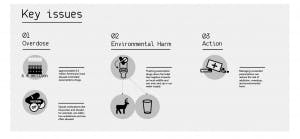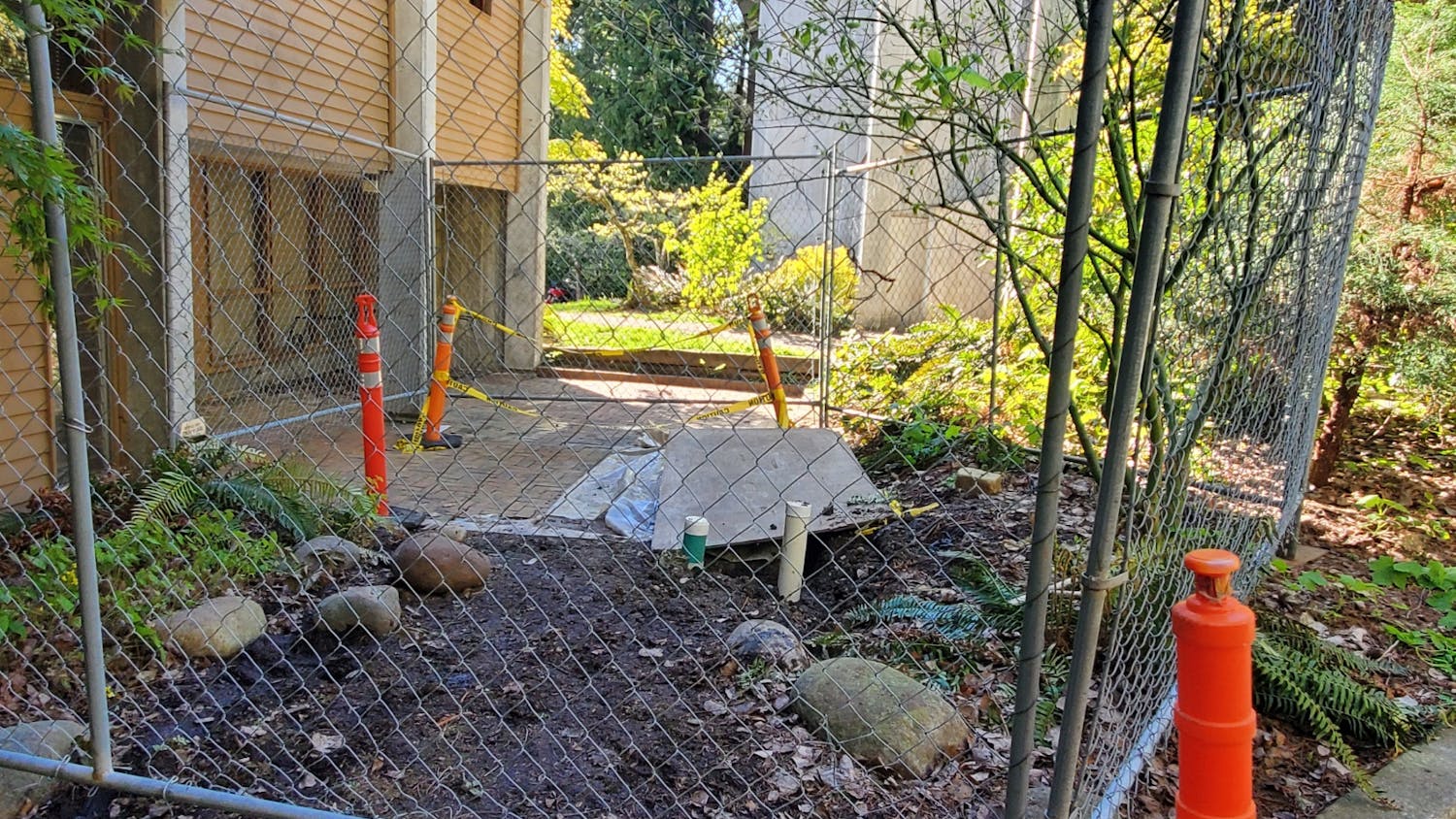Western is encouraging students and staff to take part in National Prescription Drug Take Back Day through a new campaign during the month of April to share information and reduce risks surrounding prescription medication.
Ian Vincent, Men’s Resiliency Specialist at the Counseling Center, said the campaign aims to raise awareness about how managing unused prescriptions can reduce the chance of addiction, overdose and environmental harm.
Kas Church, Suicide Prevention Coordinator at the Counseling Center, said this is an effort to educate students and staff about the risk of not properly disposing of old prescriptions and raising awareness about the danger they hold.
“This is part of our strategy to reduce the lethal means students have access to,” Church said. “It is also a great way to get highly addictive substances out of the hands of people who might abuse them.”
Church said many people’s first experience with opioids is with leftover prescription drugs from family or friends. According to the Drug Enforcement Administration’s National Take Back Day website, approximately 6.4 million Americans have abused controlled prescriptions drugs.

Programs at Western such as the Alcohol and Other Drug Risk Reduction, Suicide Prevention Program, Environmental Health and Safety, and Men’s Resiliency Program have teamed up to join this national effort by the D.E.A.
Scott Martinez, risk reduction specialist at Prevention and Wellness Services, said properly disposing of unused or expired medication removes these substances from the mainstream supply, which can help reduce misuse.
“Opioid medications like OxyContin and Vicodin for example, are addictive substances and are often abused,” Martinez said. “Proper disposal cuts into the amount of medication that might be otherwise available in our community.”
Prescription drugs often sit in medicine cabinets long after the person who they are prescribed to needs them, making them easily accessible to those who may misuse them.
“We have an opportunity to make a positive change, one that will make our community safer for all,”
Kas Church said.
Students are known to share prescription drugs for recreational use or cramming for exams, Martinez said. In a time where opioid abuse is on the rise, it may seem normal to give away or sell personal medication. Many students may be unaware of both the physical and legal risk of sharing their prescriptions.
“Most people are surprised to learn that it is actually a felony to share or sell controlled prescription medication,” Church said.
In addition to the risk of abuse or addiction, some of the common ways of disposing of prescription drugs have negative impacts on the environment.
“Flushing prescription drugs down the toilet has negative impacts on local wildlife and can even end up in our water supply,” Church said. “We want students and staff to know Whatcom County is fortunate in that we have an abundance of year-round drop off sites.”
Church encourages students and staff to participate in National Prescription Drug Take Back Day by cleaning out their medicine cabinets, blacking out all personal information except for the prescription name and taking their old prescriptions to a designated drop-off site in Whatcom County.
When dropping off prescription medication, it is important to know the difference between controlled and non-controlled substances, according to Whatcom Has Hope, an organization focused on preventing opioid abuse.
According to Whatcom Has Hope, controlled substances include oxycodone, codeine, alprazolam, hydrocodone and acetaminophen, among others. Non-controlled substances include prescription medications that do not fall under controlled medications, as well as pet medications, medicated ointments or lotions, over-the-counter medications, vitamins, inhalers and unopened EpiPens.
There is not a drop-off location on campus, but there are various sites throughout Whatcom County where both controlled and non-controlled substances can be deposited. Of the 11 sites, the closest locations to campus include the Bellingham Police Department, Unity Care Northwest on Unity Street and the Haggen Pharmacy in Fairhaven.
“We have an opportunity to make a positive change, one that will make our community safer for all,” Church said.





